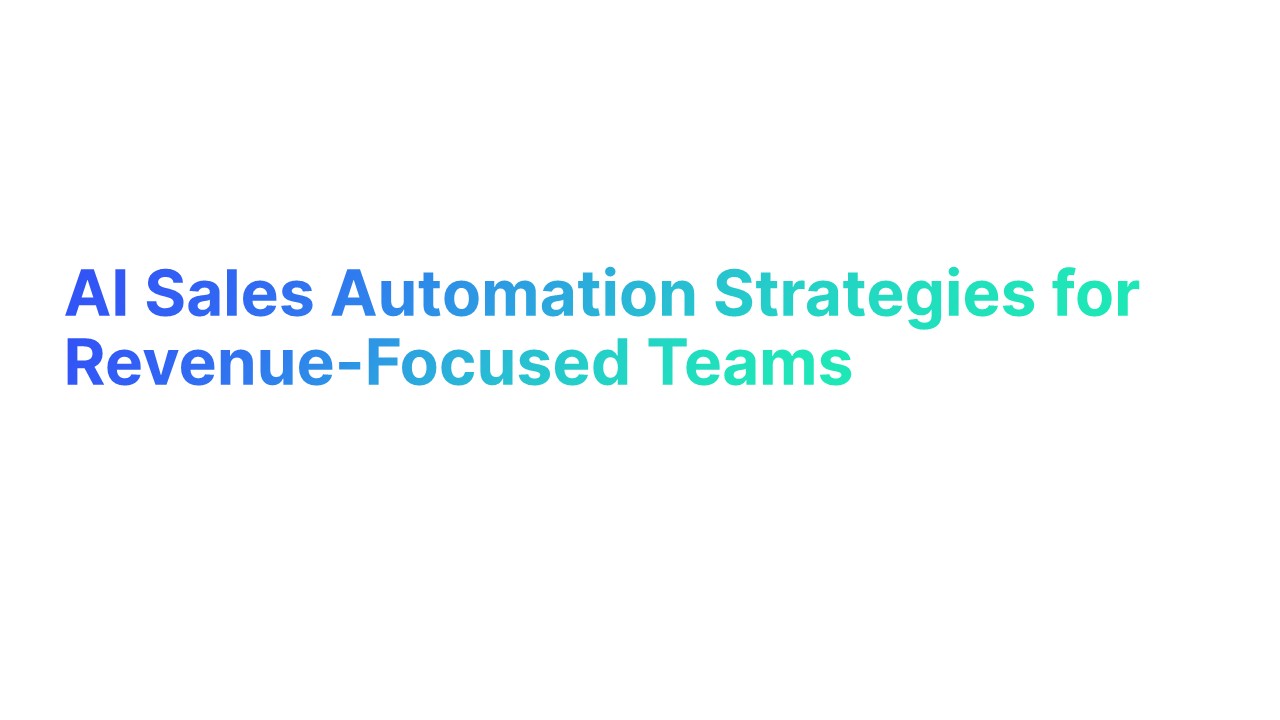Searching for ways to improve your sales performance? A sales engagement platform could be just what you’re looking for.
These platforms are transforming the way sales teams operate, with data showing that companies using them see a 30% increase in sales productivity.
If you're not already leveraging one, you're missing out on the competitive edge your rivals might already have. Stick around to discover the must-have best sales engagement platforms that top sales reps rely on to close more deals and drive more revenue growth.
What is a Sales Engagement Platform?
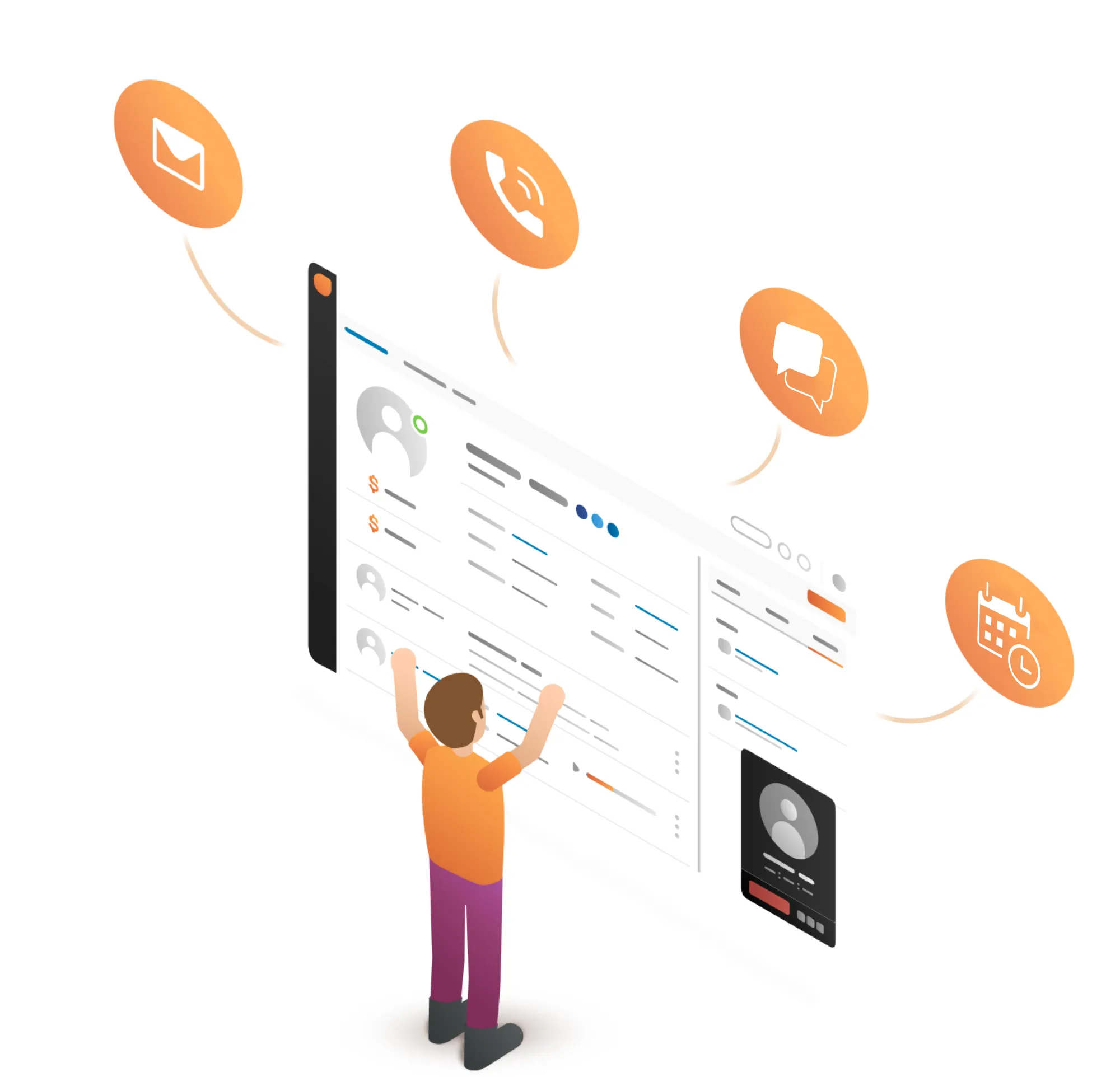
A sales engagement platform is a tool that helps sales teams enhance their communication with customers. It brings all communication channels, like emails, phone calls, and social media, into one place.
This makes it easier for sales reps to keep track of their conversations and follow up with prospects. This means sales reps can focus more on building relationships and closing deals.
Importance of Integrating Sales Engagement Software
Integrating a sales engagement platform into your sales process is crucial. Here's why it’s important:
1. Optimized Sales and Marketing Efforts
- When sales and marketing efforts are combined, they work better together.
- A sales engagement platform makes sure that your sales team knows what your marketing team is doing. This helps in creating personalized messages for customers.
- By doing this, sales reps can engage prospects with the right message at the right time, which leads to more deals.
2. Enhanced Sales Productivity
- Sales engagement platforms automate many tasks, like sending follow-up emails and scheduling meetings. This saves time for sales reps, allowing them to focus on talking to customers.
- With less time spent on repetitive tasks, sales productivity goes up. Reps can reach out to more prospects and close deals faster.
3. Empowerment of Revenue Teams
- A sales engagement platform gives revenue teams the tools they need to succeed.
- It helps track customer interactions and provides data that shows what is working and what isn’t. With this information, sales leaders can make better decisions and improve sales strategies.
- It also makes it easier to train new sales reps, as they can see what works best in real-time.
4. Advanced Features for Competitive Edge
- Sales engagement platforms come with advanced features that give your sales team an edge over competitors.
- For instance, some platforms offer AI-driven insights that predict which prospects are most likely to buy.
- Others provide detailed analytics that show how well sales campaigns are performing. These features help sales teams stay ahead in the market by using the latest technology to close more deals.
Top 10 Sales Engagement Platforms
1. Alore
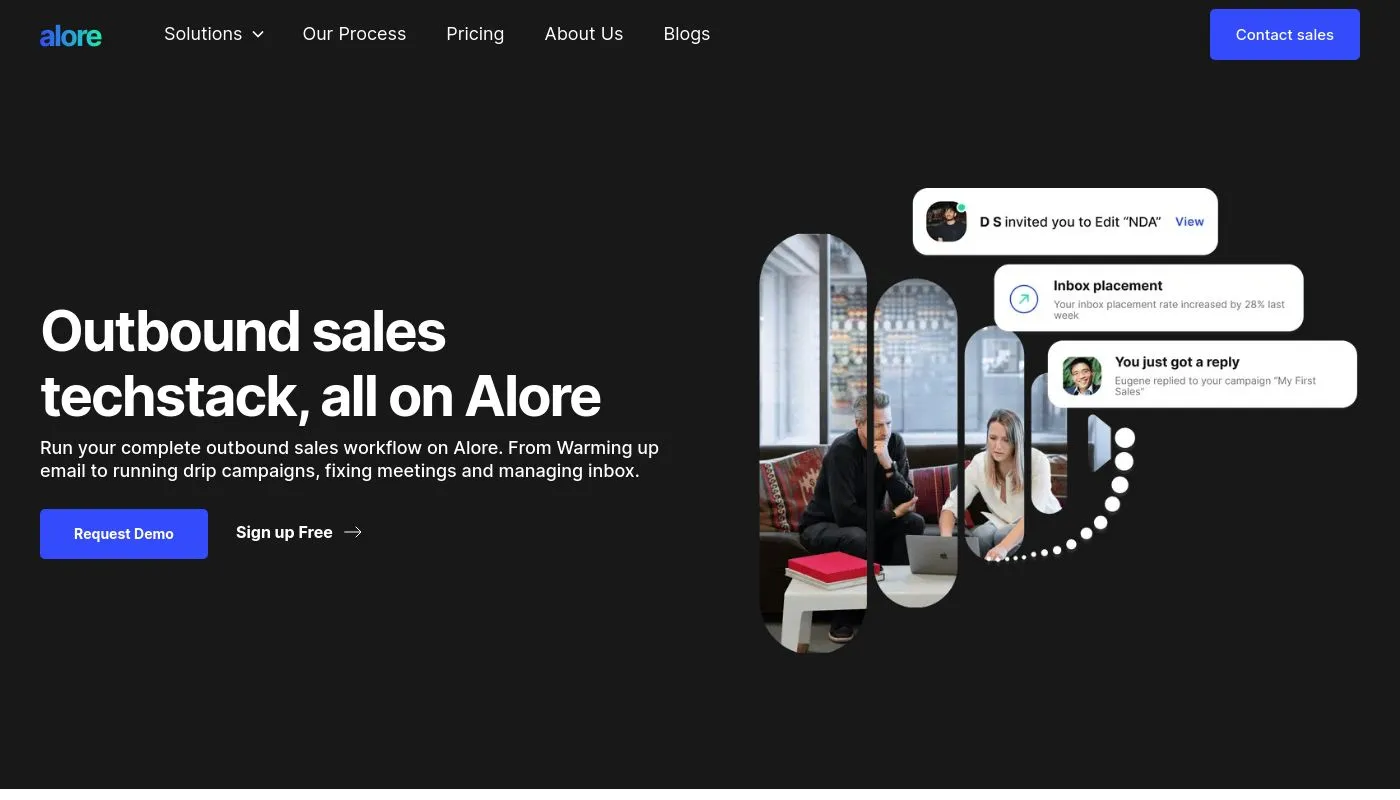
Alore is a powerful sales engagement platform designed to help sales teams automate and streamline their outreach. It combines several tools into one, making it easier for sales reps to manage their tasks.
Key Features:
- AI-Powered Automation: Alore uses artificial intelligence to help sales reps send the right messages at the right time. It can automate emails, follow-ups, and even schedule phone calls.
- Multi-Channel Outreach: With Alore, you can engage prospects through multiple channels, like email, phone calls, and social media, all from one platform.
- Analytics Dashboard: Alore provides detailed reports on sales performance, so you can see what’s working and where there’s room for improvement.
Users: Alore is popular among small to mid-sized businesses. It’s a great choice for teams that want to improve their sales productivity without spending a lot of money. Especially those looking for CRM, email automation, and lead generation features.
Pricing: Paid plans start at around $12 per user per month, offering more advanced features like automation, lead generation and scoring. Alore offers different pricing plans depending on the size of your team and the features you need. It’s known for being affordable, especially for smaller teams.
- Pros: Affordable, easy to use, and has powerful automation features.
- Cons: May not have all the advanced features that larger companies need.
G2 Rating: Alore has a solid G2 rating of around 4.5 out of 5, often praised for its user-friendly interface and effective automation tools.
2. Outreach

Outreach is a well-known, sales engagement software platform that helps sales teams increase their productivity and close more deals. It’s a more advanced sales tool, suitable for larger sales teams.
Key Features:
- Sales Automation: Outreach automates many of the repetitive tasks that take up a sales rep’s time, such as sending follow-up emails and scheduling meetings.
- Advanced Analytics: Outreach provides deep insights into your sales process, helping you understand what strategies are working and what needs to be improved.
- Multi-Channel Communication: Like Alore, Outreach supports outreach through multiple channels, including email, phone calls, and social media.
Users: Outreach is used by large enterprises and fast-growing companies for best sales engagement. It’s ideal for sales teams that need advanced tools to manage complex sales processes.
Pricing: Outreach is more expensive, but it offers more advanced features and customization options. Pricing depends on the size of your team and the specific features you need.
- Pros: Highly customizable, excellent analytics, and strong support for large teams.
- Cons: More expensive and may be too complex for smaller teams.
G2 Rating: Outreach has a high G2 rating of 4.3 out of 5, with users often highlighting its powerful features and ability to scale with growing businesses.
3. SalesLoft
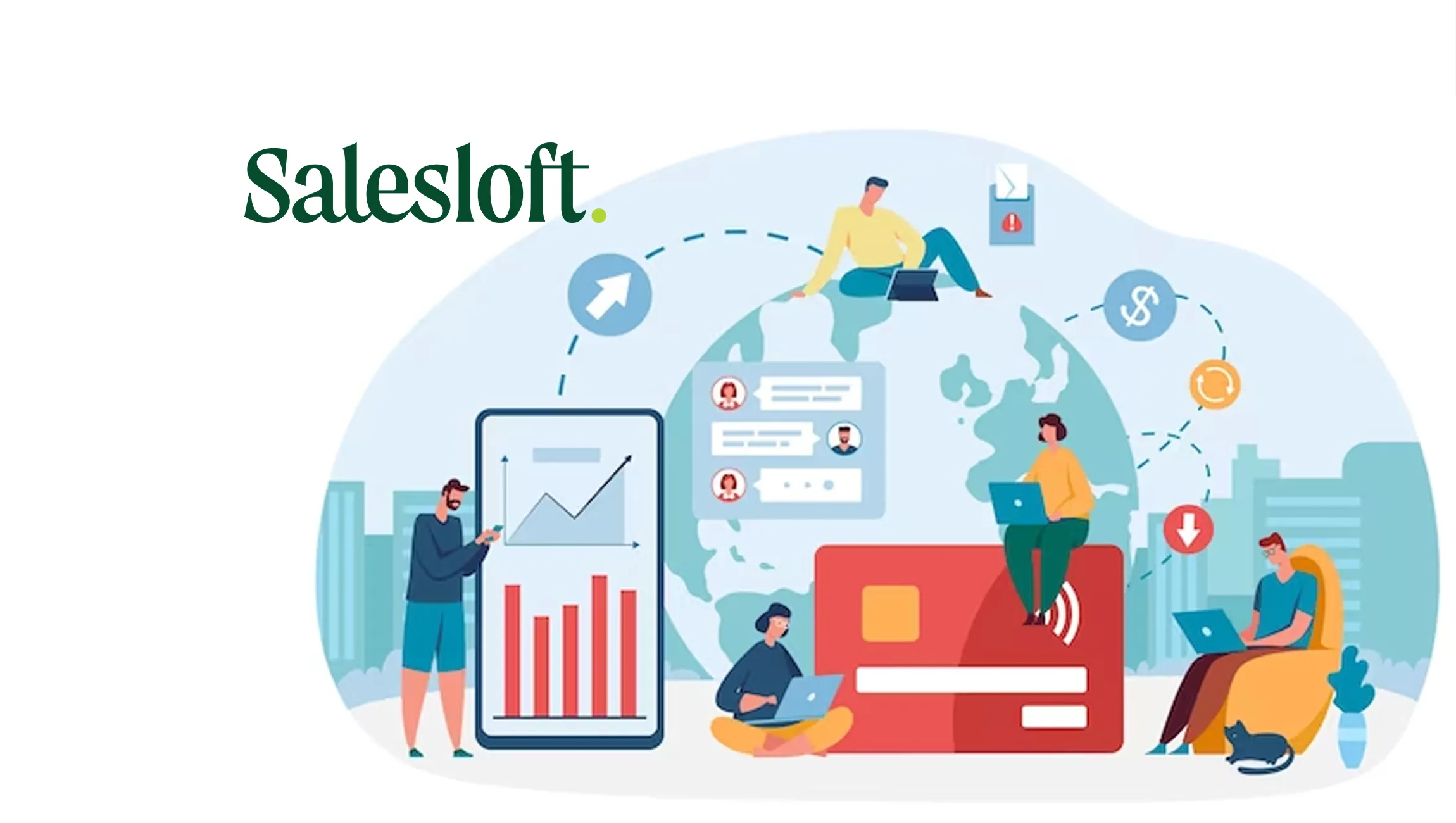
SalesLoft is a best sales engagement software platform that helps sales teams improve communication with their prospects and customers. It’s designed to make sales reps' jobs easier by organizing all their tasks in one place.
Key Features:
- Sales Cadences: SalesLoft helps you plan and automate the steps needed to reach out to prospects. This could include sending emails, making phone calls, or setting up meetings.
- Analytics and Insights: The platform offers detailed reports on how well your sales team is doing. You can see what’s working and what needs improvement.
- Multi-Channel Outreach: SalesLoft allows you to reach out to prospects through multiple channels like emails, phone calls, and even social media.
Users: SalesLoft is popular with medium to large sales teams that need a reliable tool to manage their outreach efforts, especially in B2B environments.
Pricing: SalesLoft offers different pricing plans based on the size of your sales team and the features you need. Starting from $75 per user per month. It’s more on the premium side but offers robust features that justify the cost.
- Pros: Easy to use, powerful automation tools, and great for team collaboration.
- Cons: Higher cost might be too much for smaller teams.
G2 Rating: SalesLoft has a high G2 rating of about 4.4 out of 5, with users praising its ease of use and powerful features.
4. HubSpot Sales Hub

HubSpot Sales Hub is an all-in-one sales engagement software tool, that combines a CRM platform with sales tools. It’s designed to help sales teams organize their contacts, track deals, and communicate with prospects.
Key Features:
- CRM Integration: HubSpot Sales Hub includes a built-in CRM that helps you keep track of all your customer data in one place. This makes it easier to manage relationships with prospects.
- Email Tracking: The platform allows you to see when a prospect opens your email or clicks on a link. This helps you know the best time to follow up.
- Automated Workflows: HubSpot Sales Hub can automate repetitive tasks, like sending follow-up emails, so your sales team can focus on more important tasks.
Users: HubSpot Sales Hub is a great choice for small to medium-sized sales teams, especially those that are already using other HubSpot tools.
Pricing: HubSpot Sales Hub offers a range of pricing plans, from free basic tools to advanced features for a monthly fee of $50 per month. It’s known for being flexible, offering something for every budget.
- Pros: Easy to integrate with other HubSpot tools, user-friendly, and offers a free version.
- Cons: Some advanced features can be expensive.
G2 Rating: HubSpot Sales Hub has a strong G2 rating i.e., 4.4 out of 5, with users appreciating its flexibility and integration capabilities.
5. Apollo.io

Apollo.io is a sales engagement platform that helps sales teams find and connect with prospects. It combines a large database of contacts with tools for reaching out to potential customers.
Key Features:
- Lead Database: Apollo.io offers access to a huge database of contacts, making it easier to find the right prospects.
- Multi-Channel Outreach: You can contact prospects through various channels, like emails, phone calls, and social media, all from one platform.
- Email Sequences: Apollo.io allows you to set up automated email sequences, so you can stay in touch with prospects without having to send each email manually.
Users: Apollo.io is great for small to medium-sized sales teams that need a reliable tool to find and engage prospects.
Pricing: Apollo.io offers a range of pricing plans, including a free version. Paid plans starting at around $39 per user per month. Paid plans offer more advanced features and access to a larger database of contacts.
- Pros: Large database, easy-to-use, affordable plans.
- Cons: May not have all the advanced features needed by larger companies.
G2 Rating: Apollo.io has a strong G2 rating of approximately 4.5 out of 5, with users praising its database size and ease of use.
6. Freshsales
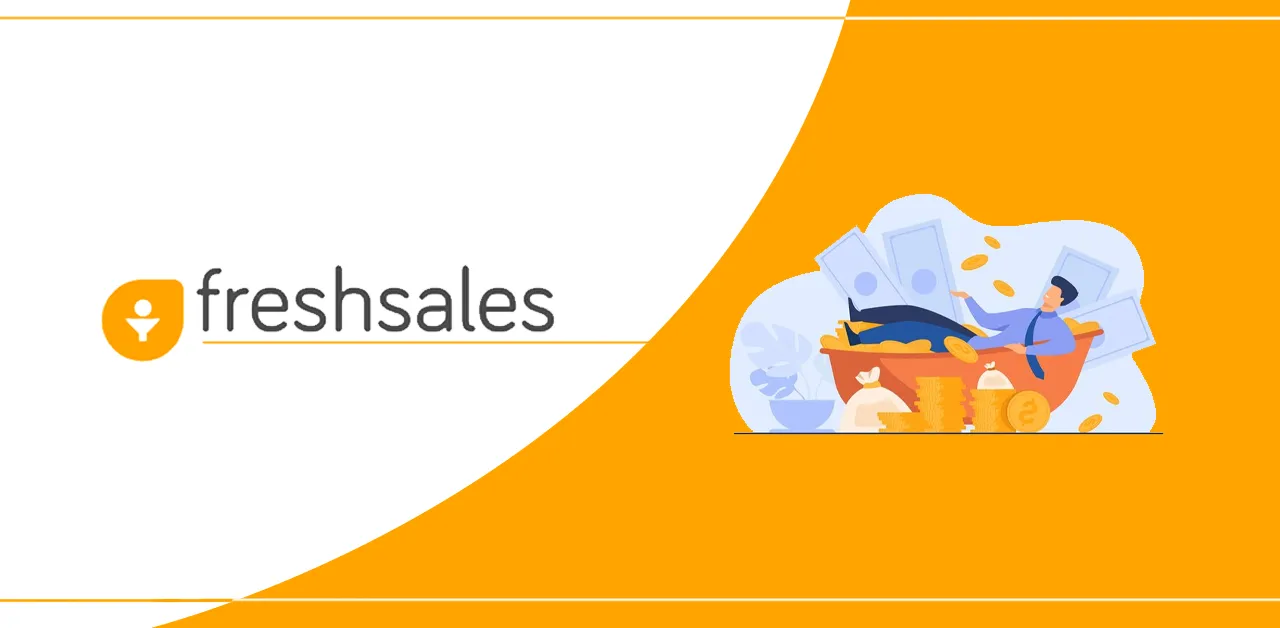
Freshsales is a sales engagement platform that also functions as a CRM (Customer Relationship Management) tool. It helps sales teams manage their contacts, track deals, and communicate with prospects.
Key Features:
- Built-in CRM: Freshsales offers a built-in CRM that helps you manage all your customer data in one place. This makes it easy to track customer interactions and follow up on leads.
- AI-Powered Insights: Freshsales uses AI to help you understand your sales data better. It can show you which leads are most likely to convert, helping you focus on the right prospects.
- Multi-Channel Communication: Freshsales allows you to communicate with prospects through multiple channels, including email, phone, and chat.
Users: Freshsales is a good choice for small to medium-sized businesses that want an all-in-one platform for managing sales and customer relationships.
Pricing: Freshsales offers several pricing plans, including a free plan for small teams. Paid plans start at $15 per user per month, making it a budget-friendly option. Paid plans come with more advanced features and AI-powered tools.
- Pros: Easy to use, affordable, includes a CRM.
- Cons: Some advanced features are only available on higher-priced plans.
G2 Rating: Freshsales has a high G2 rating of about 4.5 out of 5, with users appreciating its simplicity and CRM capabilities.
7. Outplay

Outplay is a sales engagement platform that helps sales teams manage their outreach efforts across multiple channels. It’s designed to make sales reps’ jobs easier by organizing all their tasks in one place.
Key Features:
- Multi-Channel Outreach: Outplay allows you to connect with prospects through various channels like email, phone calls, and LinkedIn, all from one platform.
- Automation: Outplay automates repetitive tasks such as sending follow-up emails and setting reminders, helping sales reps focus on selling.
- Analytics: The platform provides insights into how well your outreach efforts are working, allowing you to adjust strategies as needed.
Users: Outplay is used by small to medium-sized sales teams that need a powerful tool to manage and scale their outreach efforts.
Pricing: Outplay offers several pricing plans, starting with a free version for small teams. Paid plans start at $39 per user per month. Paid plans offer more advanced features, including automation and detailed analytics.
- Pros: Easy to use, affordable, supports multiple channels.
- Cons: May not have all the advanced features needed by larger enterprises.
G2 Rating: Outplay has a solid G2 rating of approximately 4.5 out of 5, with users praising its ease of use and effectiveness in managing outreach efforts.
8. Chorus.ai
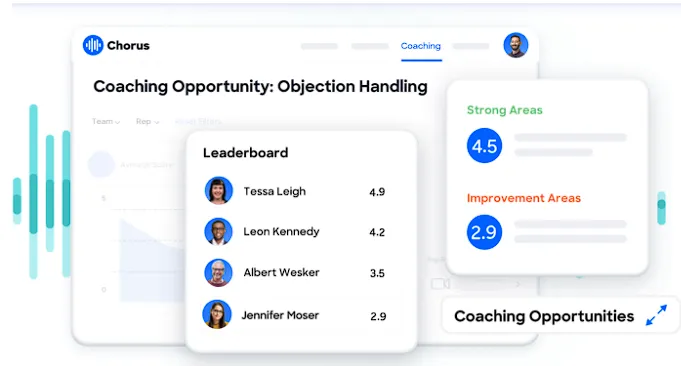
Chorus.ai is a sales engagement platform that focuses on conversation intelligence. It helps sales teams analyze their calls and meetings to improve their communication strategies.
Key Features:
- Call Recording: Chorus.ai records and transcribes sales calls, making it easier to review conversations and identify areas for improvement.
- AI-Powered Insights: The platform uses AI to provide insights into what works best during calls, such as which words or phrases lead to successful outcomes.
- Team Collaboration: Chorus.ai allows sales teams to share insights and best practices, fostering a collaborative environment.
Users: Chorus.ai is popular among larger sales teams that want to improve their communication strategies by analyzing their sales calls.
Pricing: Chorus.ai offers customized pricing based on the size of your team and the features you need. It’s generally more expensive but offers powerful insights that justify the cost.
- Pros: Provides deep insights into sales conversations, enhances team collaboration.
- Cons: Higher cost, may be too complex for smaller teams.
G2 Rating: Chorus.ai has a high G2 rating of about 4.7 out of 5, with users highlighting its ability to improve sales call effectiveness through detailed analysis.
9. VanillaSoft

VanillaSoft is a sales engagement platform that focuses on helping sales teams manage their leads and communication efforts. It’s particularly known for its lead management capabilities.
Key Features:
- Lead Routing: VanillaSoft automatically routes leads to the right sales rep based on criteria you set. This helps ensure that leads are handled by the best person for the job.
- Multi-Channel Communication: You can reach out to prospects via phone calls, emails, and SMS, all within the same platform.
- Sales Cadences: The platform allows you to create and follow a series of steps, or cadences, to engage with leads effectively.
Users: VanillaSoft is popular among sales teams in industries like insurance, finance, and fundraising, and other systems where lead management is crucial for revenue operations.
Pricing: VanillaSoft offers customized pricing based on your team’s size and needs. It’s known for being affordable, especially for smaller teams.
- Pros: Strong lead management, easy to use, affordable.
- Cons: May lack some of the advanced features found in other platforms.
G2 Rating: VanillaSoft has a positive G2 rating of around 4.2 out of 5, with users praising its lead management and ease of use.
10. Groove
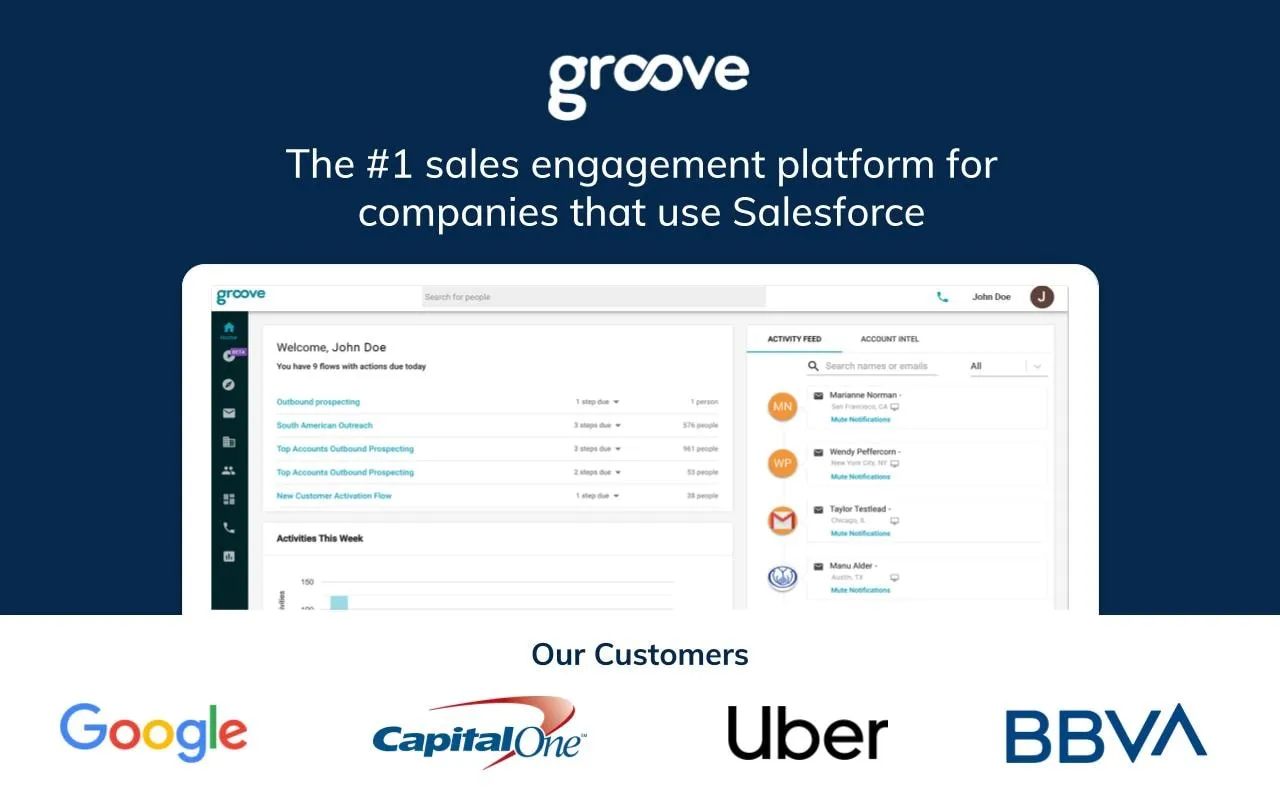
Groove is a sales engagement platform that integrates seamlessly with Salesforce. It’s designed to help sales teams automate their tasks and stay on top of their sales process.
Key Features:
- Salesforce Integration: Groove is deeply integrated with Salesforce, making it easy to manage your sales data and workflows directly within Salesforce.
- Email and Calendar Sync: Groove syncs your emails and calendar events with Salesforce, ensuring that all interactions with prospects are tracked and recorded.
- Automation: Groove automates routine tasks like follow-ups and reminders, so your sales reps can focus on selling.
Users: Groove is ideal for sales teams already using Salesforce. It’s particularly popular among larger teams that need advanced automation and integration capabilities.
Pricing: Groove offers flexible pricing plans, with options for both small teams and large enterprises. Pricing is typically on the higher side due to its deep Salesforce integration.
- Pros: Excellent Salesforce integration, strong automation features, and easy to use.
- Cons: Can be expensive, especially for smaller teams not using Salesforce.
G2 Rating: Groove has a high G2 rating of about 4.7 out of 5, with users highlighting its seamless, native integration of with Salesforce and time-saving automation features.
Key Benefits of Using a Sales Engagement Platform

1. Effective Sales Outreach
Effective sales outreach means reaching out to potential customers in a way that grabs their attention and encourages them to engage with your sales team. A sales engagement platform helps you do this more efficiently.
Here's how it helps:
- Automation: The platform can automate routine tasks like sending follow-up emails or making phone calls. This saves time and ensures that no lead is left unattended.
- Multi-Channel Communication: You can reach out to customers through various channels—email, phone, social media—all from one platform. This makes your outreach more consistent and coordinated.
- Personalization: The platform allows you to personalize your messages based on customer data. This makes your outreach more relevant and likely to succeed.
2. Better Sales Intelligence
Sales intelligence is the information and insights that help your sales team understand customer needs, preferences, and behavior. A sales engagement platform provides this intelligence and enables sales leaders by analyzing data from your interactions.
Here's how it helps:
- Data Analysis: The platform collects and analyzes data from your customer interactions, giving you insights into what works and what doesn’t. This helps you refine your sales strategies.
- Real-Time Feedback: You can see how customers are responding to your outreach efforts in real-time. This allows you to adjust your approach quickly if something isn’t working.
- Targeting: By understanding customer behavior, you can target your efforts more effectively, focusing on the leads most likely to convert.
3. Unified Sales Technology Stack
A unified sales technology tech stack also means that all the tools your sales team uses are connected and work together seamlessly. Instead of jumping between different systems, everything is in one place.
Here's how it helps:
- Efficiency: By integrating tools like CRM, email tracking, and automation into one platform, your sales team saves time. They don’t need to switch between multiple apps to get their work done.
- Data Accuracy: When all your sales tools are connected, the data stays accurate and up-to-date across the board. This reduces mistakes and ensures everyone has the same information.
- Easy Management: Managing one platform is simpler than handling several different tools. It’s easier for your team to learn, and it simplifies IT management.
4. Consistency Across Sales Campaigns
Consistency in sales campaigns ensures that your customer experience and message is clear and uniform across all channels. This builds trust with your customers and helps you create a strong brand identity.
Here's how it helps:
- Branding: Consistent messaging across all your campaigns strengthens your brand. When customers see the same message on different platforms, they recognize and trust your brand more.
- Improved Results: When your sales campaigns are consistent, they are more effective. Customers are more likely to engage when they receive the same message multiple times in a clear and consistent manner.
- Simplified Campaign Management: With a sales engagement platform, you can easily ensure that all your communications, whether through email, phone calls, or social media, deliver the same message.
5. Enhanced CRM Data Utilization
CRM (Customer Relationship Management) data utilization means making the best use of the accurate data you collect about your customers. This data includes things like customer preferences, past interactions, and purchase history.
Here's how it helps:
- Organized Data: A sales engagement platform organizes your CRM data in a way that’s easy to access and understand. This means you can quickly find the information you need to connect with customers.
- Better Insights: By using a sales engagement platform, you can gain better insights from your CRM data. It helps you see patterns in customer behavior, so you can make smarter decisions about how to engage with them.
- Personalized Outreach: With enhanced CRM data, your sales team can personalize their outreach efforts. They can send messages that resonate more with each customer because they have a deeper understanding of what each customer wants.
Sales Engagement Solutions for Different Sales Teams
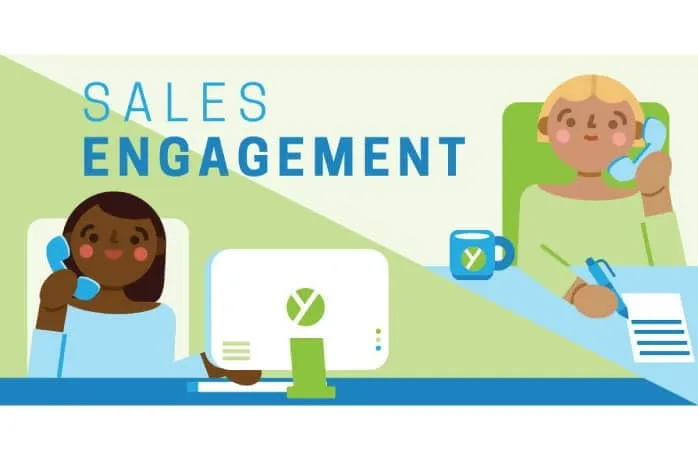
1. Inside Sales Teams
Inside sales teams work primarily from an office or remotely, engaging with customers through phone calls, emails, and other digital communication channels. They don’t usually meet customers face-to-face.
Why It's Important:
- Efficiency: Inside sales teams handle many customer interactions each day. A sales engagement platform helps them stay organized by automating repetitive tasks, tracking customer interactions, and providing easy access to customer data.
- Consistency: These platforms ensure that all communication is consistent. Whether it’s through email templates or call scripts, the messaging stays uniform, helping to build a strong brand image.
- Performance Tracking: The platform provides real-time insights into how well sales reps are performing. This helps managers identify areas for improvement and offer targeted coaching.
How to Implement:
- Start with Training: Ensure that all team members understand how to use the platform. Provide training sessions to familiarize them with key features like email tracking, automated workflows, and CRM integration.
- Set Up Templates: Create email templates and call scripts that align with your brand’s voice. This will help your team deliver consistent messages across all customer interactions.
- Monitor and Adjust: Regularly review the performance metrics provided by the platform. Use these insights to tweak strategies and improve team efficiency.
2. Field Sales Teams
Field sales teams are the sales rep, those who go out into the field to meet customers in person. They often travel to various locations, conducting face-to-face meetings, product demonstrations, and closing deals.
Why It's Important:
- Mobility: Field sales teams need access to customer data and sales tools on the go. A sales engagement platform that is mobile-friendly allows them to pull up information quickly, even while traveling.
- Real-Time Updates: With a sales engagement platform, field sales teams can update customer records in real time. This ensures that the rest of the team back at the office is always aware of the latest developments.
- Improved Coordination: The platform helps field sales teams stay connected with their colleagues, enabling better coordination and sharing of vital information, such as customer preferences and past interactions.
How to Implement:
- Choose a Mobile-Friendly Platform: Select a sales engagement platform that works well on mobile devices. This ensures that field sales reps can access the tools they need wherever they are.
- Integrate with CRM: Ensure that the platform integrates smoothly with your existing CRM system. This allows for seamless updates and access to customer data.
- Use for Planning and Follow-Up: Encourage field sales reps to use the platform to plan their visits and follow up on meetings. The platform can help them schedule appointments, track outcomes, and set reminders for follow-ups.
3. Enterprise Sales Teams
Enterprise sales teams focus on selling to large organizations. These deals are often complex, involve multiple stakeholders, and take a long time to close.
Why It's Important:
- Complex Deals: Enterprise sales involve many steps. A sales engagement platform helps track each stage of the sales process, ensuring nothing is missed.
- Coordinated Efforts: With large teams, coordination is key. The platform ensures that all team members are on the same page by keeping everyone updated on the latest developments.
- Data-Driven Decisions: The platform provides real-time data and insights, helping teams adjust their strategies based on customer behavior and feedback.
How to Implement:
- Integrate with Existing Systems: Ensure the platform integrates well with your existing CRM and other tools. This keeps all your data in one place, making it easier to manage.
- Use Advanced Features: Leverage features like automated workflows and personalized communication to manage complex deals more efficiently.
- Regular Training: Provide ongoing training to ensure that all team members are using the platform effectively. This keeps the team aligned and maximizes the platform’s benefits.
4. SMB Sales Teams
SMB (Small and Medium-Sized Business) sales teams focus on selling to smaller businesses. These deals sell faster, are usually quicker to close and involve other teams but fewer decision-makers.
Why It's Important:
- Efficiency: SMB sales teams often have limited resources. A sales engagement platform helps them work more efficiently by automating tasks like follow-ups and email tracking.
- Scalability: As SMBs grow, their sales teams need tools that can scale with them. A sales engagement platform can easily adapt to increasing sales activities and larger customer bases.
- Consistency: The platform ensures that messaging is consistent across all communication channels, helping SMB sales teams build trust and credibility with their customers.
How to Implement:
- Start Small: Begin by using the platform’s basic features like email templates and automated reminders. As your team becomes more comfortable, you can explore advanced options.
- Focus on ROI: Track the platform’s impact on sales performance. This helps ensure that the investment is paying off and allows you to make necessary adjustments.
- Customize Communication: Use the platform to create personalized messages for different customer segments. This increases the chances of closing deals and building long-term relationships.
5. SaaS Sales Teams
SaaS (Software as a Service) sales teams sell software products that are typically delivered online. These teams focus on both sales tactics: acquiring new customers and retaining existing ones.
Why It's Important:
- High Volume Sales: SaaS sales teams handle many leads. A sales engagement platform helps manage these leads efficiently, ensuring that no opportunities are lost.
- Personalized Outreach: SaaS products often require tailored solutions for different customers. The platform allows sales teams to personalize their outreach based on customer needs and preferences.
How to Implement:
- Segment Your Audience: Use the platform to segment your leads and customers based on their behavior, industry, or size. This helps tailor your messaging to each group.
- Automate Retention Efforts: Set up automated workflows to follow up with customers at key points in their journey, such as after a trial period or before a subscription renewal.
- Track and Optimize: Continuously monitor the platform’s performance and adjust your strategies as needed. This ensures that your sales process remains effective and efficient.
Conclusion
A sales engagement platform is essential for modern sales teams. It helps streamline communication, improve the sales cycle and performance, and increases productivity. By choosing the right platform, you can ensure that your sales team stays ahead of the competition. Remember, the right tools make all the difference in achieving your sales goals. Invest in a platform that meets your team's needs, and watch your sales process transform.





.webp)

